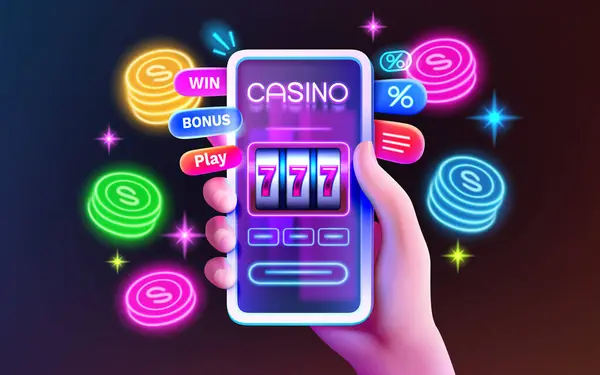The fantasy is easy to picture: a sleek lobby, live dealers on tap, generous bonuses, and a community of loyal players. The reality begins far beneath the surface—with casino software that quietly handles payments, risk, content, and compliance every minute of every day. If you plan to enter the market or modernize an existing brand, you’ll likely evaluate turnkey and white-label suites alongside deeper, more customizable platforms. To see what modern solutions look like in practice, review white-label stacks such as casino software and use the framework below to separate marketing from mechanics before you commit.
First Principles: Speed, Control, and Compliance
Founders typically optimize for time-to-market without sacrificing future flexibility. A credible platform balances three forces:
- Speed: Pre-integrated cashier, KYC/AML flows, and game aggregation so you can launch in weeks rather than quarters.
- Control: Clear configuration for bonuses, catalogs by region, payment routing priorities, and front-end theming.
- Compliance: Repeatable workflows for age and identity checks, source-of-funds requests, self-exclusion, and reporting.
Ask vendors to demonstrate these pillars live—not just in slides. You want to see real dashboards, not mockups.
What “Complete” Looks Like on Day One
- Payments & Risk: Cards, bank rails, e-wallets, alt methods, and (where legal) crypto; velocity limits, device fingerprinting, and chargeback playbooks.
- Game Aggregation: Hundreds to thousands of slots and tables, reputable live casino providers, instant games, and rapid certification updates.
- Player Safety: Reality checks, deposit limits, cool-off, and self-exclusion that persist across devices and sessions.
- Back Office: Real-time KPIs, player timelines, dispute tooling, granular roles/permissions, and exportable raw data.
- CMS & Localization: Multi-language, multi-currency, region-specific banners, and per-jurisdiction content control.
Bonus Engine and CRM: The Retention Core
Promotions should feel like a calibrated product, not a gamble. Insist on:
- Contribution tables by game category so wagering is predictable and fair.
- Time-boxed campaigns, segmented rewards (new, active, VIP, dormant), and anti-abuse rules you can actually enforce.
- Event-based CRM—on-site messages, push, and email—triggered by real behavior (abandoned deposit, first loss streak, milestone wins).
Measured correctly, a strong engine does more than juice GGR; it reduces support load because expectations match outcomes.
KYC/AML and Trust: The Invisible Dealbreaker
Players rarely praise smooth verification—yet they’ll leave instantly when it’s clumsy. Your software should ship with document checks, liveness, enhanced due-diligence prompts, and clear reasons for any limits placed on an account. In the back office, your team needs a chronological, filterable view of each player’s story: registrations, device changes, deposits, withdrawals, bonuses, flags, and resolved disputes. Fast, fair, documented—that’s the bar.
Data You Can Use (and Take With You)
Real-time dashboards are table stakes; exportability is the differentiator. You want:
- Self-serve CSV/JSON exports of sessions, transactions, and campaign results without opening tickets.
- Cohort views—registration → KYC → first deposit → first session → 7/30-day retention.
- Optional event streams or APIs for your BI stack so you forecast, not just report.
Commercial Models Compared
| Model | Pros | Cons | Best For |
|---|---|---|---|
| White-Label (Turnkey) | Fastest launch; bundled payments, compliance, and content | Revenue share; some vendor guardrails | First brand, speed-critical timelines |
| Platform Rental (PaaS) | Lower entry cost; managed upgrades and hosting | Monthly fee; fixed cadence for new features | Pilot markets or seasonal projects |
| Source License | Maximum control and extensibility | Higher upfront; requires in-house engineering | Scale-ups with custom roadmaps |
Due Diligence Checklist (Steal This)
- Licensing Story: Which jurisdictions at launch? What’s the “fast-follow” path?
- Payments Geography: Approved methods per region; fallback routes for risky BINs; average approval times.
- Game Catalogue: Top studios included, certification pipeline, and region-gating enforcement.
- Bonus Logic: Can non-technical staff build and schedule promos without engineering?
- Risk & Disputes: Duplicate-account detection, chargeback tooling, and auditable resolution notes.
- Data Ownership: Raw exports on demand; clear SLAs for data access; staging environment for testing.
- Reliability: SLA, disaster recovery, change management during peak seasons, status page transparency.
Marketing and Affiliates: Fuel Without Fire Drills
Most new casinos scale through performance partners. Expect a serious affiliate cabinet: CPA/RevShare/Hybrid deals, granular link tracking, fraud controls, and fast approvals. On the brand side, insist on A/B testing for banners and landing pages, plus segmentation tags that personalize the lobby for different cohorts. The goal isn’t louder promotions; it’s smarter ones.
90-Day Launch Plan (Reusable)
- Weeks 1–2: Contract, brand kit, domains, cashier/KYC wiring, initial game pack, compliance checklist.
- Weeks 3–4: Bonus templates and contribution tables; affiliate program live; staging sign-off on cashier and flows.
- Weeks 5–8: Soft launch in one region; monitor funnel friction (KYC drop-off, payment declines, time-to-first-game).
- Weeks 9–12: Add top-requested providers, expand payment options, localize content, scale support hours, and set weekly CRM rhythms.
Hidden Costs to Model Upfront
Beyond headline setup and platform fees, model KYC checks, fraud tooling, payment processing, content provider costs, customer support staffing, translations, and future certification updates. Ask for transparent rate cards and examples of how fees scale with GGR/NGR so your cash-flow forecast doesn’t turn mysterious mid-quarter.
Red Flags vs. Green Lights
Red flags: scripted demos only, no staging environment, vague roadmaps, slow or manual data exports, unclear incident procedures. Green lights: live instances you can tour, explicit SLAs and DR plans, product managers who speak like operators, and a documented onramp to more control as you grow.
Bottom Line
Great online casinos don’t win on slogans—they win on operational calm. Choose casino software that lets you configure instead of constantly rebuild; that adds payments and content without downtime; and that treats data as a first-class product. Start with proven rails, then make them yours. If your platform can demonstrate cashiers that clear, games that never strand players, and a back office that makes staff faster, you’ll launch like a pro and stay flexible when the real work begins: earning player trust, one session at a time.
